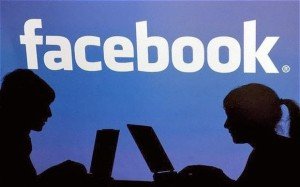Facebook, the world’s most popular social network, has recently eclipsed Amazon.com in terms of market capitalization. For a company that was started hardly a decade back, that is quite an achievement. Facebook today has over 1 billion registered users, making it the third most populous nation after China and India and it continues to grow at a significant rate. However the question remains- For how long?
There are several reasons why I am skeptical as an analyst of Facebook’s value proposition. What is Facebook quintessentially? A website that is valued in the tune of 100-150 billion USD. Now just think about it logically-
-Is the model replicable? The answer is yes. There are already plenty of social networks springing up and I am sure sooner rather than later someone would come up with a more intriguing concept.
-Does a 100 billion USD sound absurd for such a site when its counterparts- LinkedIn and Twitter -are valued at less than a fifth of this value? Definitely yes.
For the first time in its 10 year history, more than half of the referral traffic on the site was generated from mobile devices in the year 2013. While this may seem normal considering the increasing popularity of tablet devices, does Facebook really have a revenue model customized for mobile devices? Also as the world increasingly turns mobile, will a revamped Whatsapp or WeChat pose a greater threat to its popularity than the likes of Google+? For instance, if Whatsapp starts a social network will it entice the user more than Facebook to share personal data?
Facebook still has no presence in the world’s largest internet market – China. With a population exceeding 1.4 billion, Facebook will face great challenges from the likes of Sina-Weibo in the People’s Republic of China even if it is allowed to enter the market today. Neither is Facebook the most popular social network in important markets like Russia. Moreover, the entire model of Facebook is revolved around an online model whereas the internet penetration levels are fairly low in emerging economies in Asia and Africa. Can Facebook create an offline model in future to boost its revenue stream? There are several people who can argue that this will help in boosting growth in future but the point is can they be sure a rival social network will not be dominant in these countries?
Facebook recently introduced its Paper app- showing its increasing desire to emerge as a destination for news across the world. In fact, Facebook actually lost the front runner advantage to Twitter in this aspect which became the popular platform for trends & breaking news with the help of hashtags. In its new avatar, Facebook too offers similar features with a trending section and its own hashtags- clearly showing its desire to take on Twitter on its turf. With Paper, Facebook wants to take on news portals and Pulse- the popular article tool of Linkedin. While this is a positive development, yet one must not ignore the fact that the quality of user base is far more richer and suitable in case of Linkedin for such experiments.
Facebook will increasingly look to emerge as the premier destination for advertisers by having more targeted ads based on the social profile of its user base. The problem though is Facebook still doesn’t quite realize how much of that user data can it continue to use without threatening the privacy of the user. For instance, it recently faced a lawsuit in US for allegedly tracking private messages that users send each other on the network to better target its Ads. If a user uses Facebook, then does he transfer the ownership of his data to Facebook by default?
Facebook has been trying to emulate Google in more ways than one and compete with it at the same time. For instance, its decision to build housing for its employees near the company headquarters is a clear step in this direction. It recently got voted as the Best Place to Work by GlassDoor at the expense of Google. Furthermore, it also plans to enter the field of antivirus sooner rather than later- in short it is trying to emerge as a one-stop solution. A near utopia, one may say.
Now that Google officially knows its social network has been unable to compete with Facebook, it will continue to integrate Google+ with all of its services till it figures out some better way to tackle Facebook. Samsung too is believed to be secretly building its own social secretly for mobile users. But how long will people continue to share their personal data for free? Is a revenue sharing arrangement with the end user inevitable in future?
Facebook is a free service. Agreed. But does that imply that every bit of data that a user shares on its platform can be used by the company for its own monetary gains? Can it continue to make money at the expense of the user’s privacy? How does Facebook screen its advertiser network and ensures that the data sold to them does not lead to any kind of loss or threaten the safety of the individual? These are questions that will impact the growth of the network in coming decade. It is just a matter of one big mistake and things will come crumbling down for the social network.
In fact the model that Linkedin has adopted can be a suitable alternative for Facebook. Linkedin offers two models for its users- a premium AD- free model and an AD-supported account. Facebook too should look at building such a model in future, whereby users will have the right to decide whether they want to use the network with no concern for their privacy or use a premium version of the network with total security. While Facebook has 1.2 billion registered users, the number of active users is in the tune of 800-850 million- the quality of this user base does pose a serious question mark for the advertisers. Why does Facebook not declare details like number of accounts that are accessed from unique IPs? Or number of accounts that reportedly indulge in suspicious behavior?
Facebook will increasingly face the heat from Google its main competitor in the entire landscape. While main source of Google’s revenues come from its search engine and keywords, Facebook has built its model across social recommendation. Will an individual essentially prefer a social recommendation or like to access the entire information available on the web before making up his mind on the matter? This is undoubtedly the cornerstone of this business model.
So should Facebook essentially look at building a search engine? I personally feel that tying up with Bing was a short-sighted step especially when it had all the technology and money to build its own search engine. Building its own search engine would have given it access to increasing amount of available data by indexing pages while also increasing value for the shareholders. Advertisers too would have looked at Facebook as a multi-dimensional enterprise and not just as a social network. In short, the value proposition for advertisers would have been much more with a Facebook search advertising option included than just depending only on social Ads.
People will continue to use search engines even if they are not regular users of social networks. When Facebook started graph search, it was a step in the right direction. But can it extend the benefits of graph search to even non-users of its platform? That is perhaps the question that Facebook needs to answer in the next decade.
In short, Facebook has so far put all its eggs in a single basket- a sure recipe for disaster in coming years. What remains to be seen though is how long can Facebook sustain itself with such a model?
[I will analyze the quantitative aspects of the Facebook model in subsequent write-ups on this topic. ]

































There was an a time when people had same craze for Orkut, but that was again short lived because of it’s lack of innovations in the ways of communicating.It didn’t lasted long at all. Perhaps it also became quite boring to just chat with people and yes that was all. But Facebook came as a game changer, it not only allowed people to chat but also interact with the other users in a different way and also it can be used for free social media marketing in a sense. And with the way people are still enrolling for FB, I don’t see them loosing the market for no lesser than 10 years, but i think 2 decades is an enough time, for any business to gain some good business fortune and build something else for continual revenue, living on one source can certainly bring some dark clouds on the fate of company.
That’s true. But Facebook changed its newsfeed algorithm last night. Increasingly it is becoming more and more inclined on monetization. This will pave the way for alternate mediums like Twitter & Youtube to emerge as a more popular medium in future.
nice article.quiet worth reading
Thank u 🙂